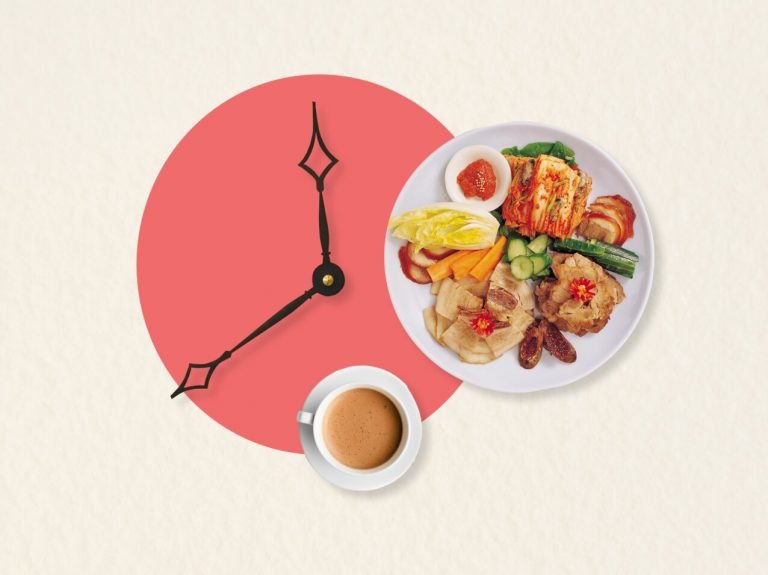The importance of meal timings in diabetics is crucial as research suggests that keeping your food timing consistent helps to regulate blood sugar.
Having a stable glucose level keeps you feeling energized throughout the day.
If food timing is not consistent, you may experience a dramatic rise in blood glucose and a lack of energy throughout the rest of the day.
Questions like what time should diabetics have their breakfast, lunch and dinner? How many meals and snacks can a diabetic have everyday?
Types of meals a diabetic can have everyday is what this article will look into.
How Meal Timings Impact Blood Sugar Levels?
1. Better Energy Levels
Blood glucose levels often hit their peak within 90 minutes of eating a meal, as this is the time it usually takes for levels to return to normal. By eating and taking medicines on time, you can keep your energy levels up and your mind focused. The importance of meal timings in diabetics is that it also helps you maintain a healthy lifestyle.
2. Better Glycemic Control
As a general rule, doctors recommend eating every three to four hours for optimal blood sugar management. Have breakfast within an hour of waking up. Your lunch timing should be based on when you eat breakfast. Meal types ought to be nutritious and consumed three times a day, along with a couple of healthy snacks like nuts. Also, consult your doctor on the amounts of carbohydrates in the meal type.
3. Better Meal Control
Research shows that if you have a meal-type plan where you eat a large meal in the morning and smaller meals for lunch and dinner, it may promote weight loss and lower blood sugar levels.Try having a breakfast rich in blood sugar-controlling protein and fibre.
4. Regulate Internal Clock
Regular meal timings can help you maintain your circadian rhythm, which is one of the keys to achieving excellent control of glucose levels. So, be consistent and disciplined with your food timings.
5. Better Biological Balance For The Body
Doctors recommend no more than three to four hours between meals for those with type 2 diabetes for optimal blood sugar. Maintaining food timing helps in portion control, which in turn aids in weight loss and blood glucose level management.
Meal Timing Tips For People With Diabetes
With type 2 diabetes management, it’s all about consistency. So try and eat the same amount, at around the same time every day. Doctors recommend that you do not skip meals or go more than five hours without eating during the day. Portion control is also important to ensure there are no blood glucose spikes.
Risks of Not Having Your Meals On Time For a Diabetic
Skipping meals alters the balance between food intake and insulin production, and this can cause blood sugar levels to drop, leading to dangerous conditions like hypoglycemia. There’s also a risk of gastrointestinal side effects, like nausea when medication isn’t taken with meals.
Don’t Have Time To Read?
- Food timings are important for those with type 2 diabetes as it helps manage weight, build immunity, boost the body’s metabolism and maintain optimal blood sugar levels.
- Meal timings are important as it helps regulate blood sugar, keeping you feeling energized throughout the day.
- Keeping regular meal timings improves sleep, boosts energy levels, activates your metabolism, and helps maintain stable blood sugar levels.
- It is best not to skip meals or go more than five hours without eating. Also, try to eat the same amount, at the same times every day, while maintaining portion control as recommended by your doctor.
- Skipping meals may cause blood sugar levels to drop, leading to dangerous conditions like hypoglycemia.
Also Read: Protein Powder for Diabetes Patients
Friendly Asked Questions
Should Diabetics Maintain Eating Time Everyday?
Consistency is the key to type 2 diabetes management. Doctors recommend that you eat the same amount, at around the same times every day. Do not skip meals or go more than five hours without eating during the day to avoid blood glucose spikes.
How Many Meals A Day Should A Diabetic Eat?
Doctors recommend that those with diabetes must eat around 5 small meals daily. This meal-type plan allows for a slower and more continuous absorption of food, which prevents the body from switching over to a fasting state, thereby regulating blood glucose levels.
Should Diabetics Eat At Night?
If you eat breakfast at 8:30 am, then dinner for diabetics (including high-protein, low-fat snacks) should be between 8:30 am and 10:30 pm to stabilize blood sugar levels overnight.
What Time Should Diabetics Have Their Dinner?
If you eat breakfast at 8:30 am, then dinner for diabetics and snacks should be between 8:30 and 10:30 pm.
